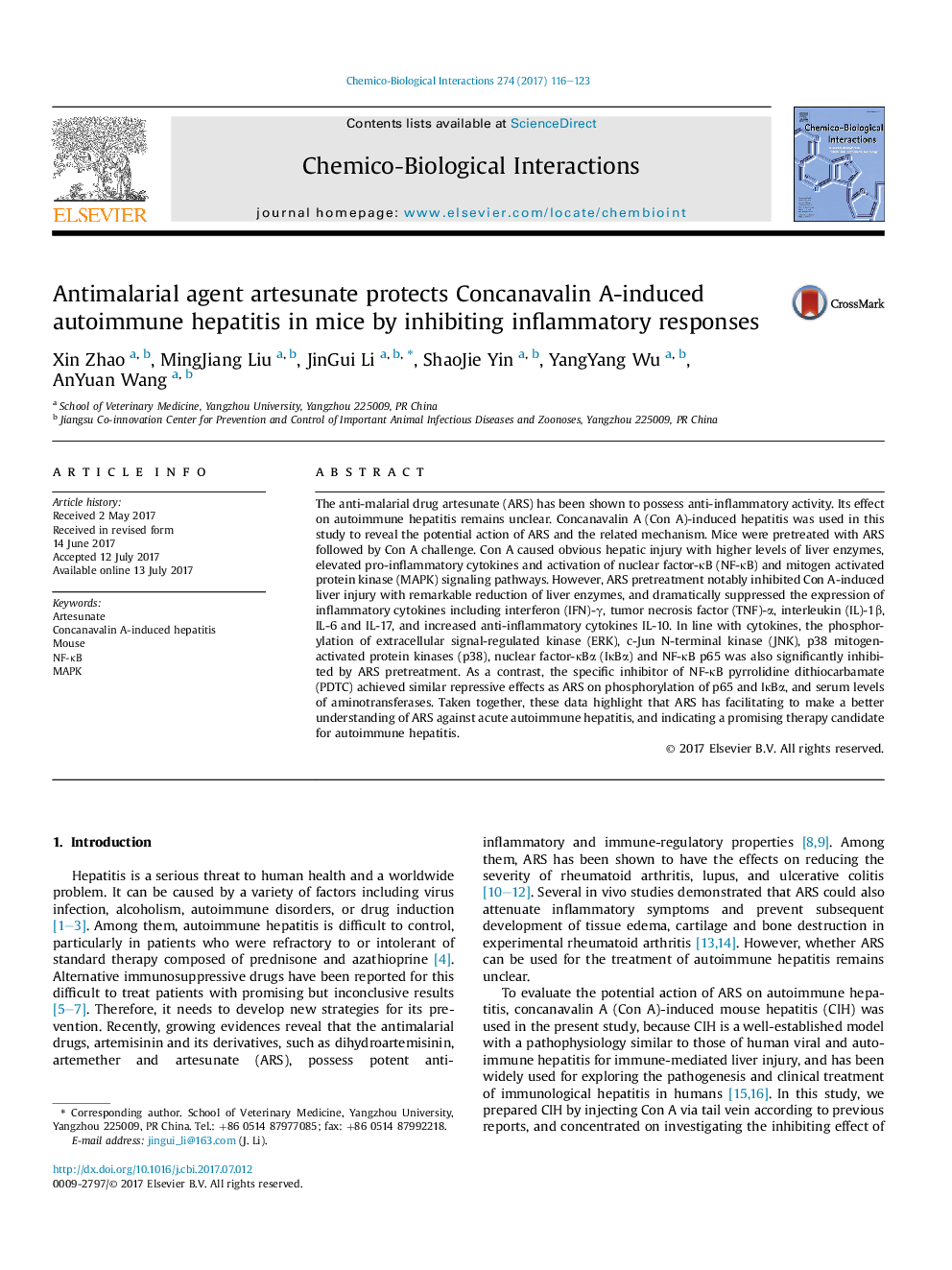| Article ID | Journal | Published Year | Pages | File Type |
|---|---|---|---|---|
| 5559275 | Chemico-Biological Interactions | 2017 | 8 Pages |
â¢Artesunate (ARS) pretreatment notably inhibited Con A-induced liver injury.â¢ARS dramatically suppressed the expression of pro-inflammatory cytokines.â¢ARS significantly inhibited the activation of NF-κB and MAPK signaling pathways.â¢This study indicates a promising therapy candidate for autoimmune hepatitis.
The anti-malarial drug artesunate (ARS) has been shown to possess anti-inflammatory activity. Its effect on autoimmune hepatitis remains unclear. Concanavalin A (Con A)-induced hepatitis was used in this study to reveal the potential action of ARS and the related mechanism. Mice were pretreated with ARS followed by Con A challenge. Con A caused obvious hepatic injury with higher levels of liver enzymes, elevated pro-inflammatory cytokines and activation of nuclear factor-κB (NF-κB) and mitogen activated protein kinase (MAPK) signaling pathways. However, ARS pretreatment notably inhibited Con A-induced liver injury with remarkable reduction of liver enzymes, and dramatically suppressed the expression of inflammatory cytokines including interferon (IFN)-γ, tumor necrosis factor (TNF)-α, interleukin (IL)-1β, IL-6 and IL-17, and increased anti-inflammatory cytokines IL-10. In line with cytokines, the phosphorylation of extracellular signal-regulated kinase (ERK), c-Jun N-terminal kinase (JNK), p38 mitogen-activated protein kinases (p38), nuclear factor-κBα (IκBα) and NF-κB p65 was also significantly inhibited by ARS pretreatment. As a contrast, the specific inhibitor of NF-κB pyrrolidine dithiocarbamate (PDTC) achieved similar repressive effects as ARS on phosphorylation of p65 and IκBα, and serum levels of aminotransferases. Taken together, these data highlight that ARS has facilitating to make a better understanding of ARS against acute autoimmune hepatitis, and indicating a promising therapy candidate for autoimmune hepatitis.
